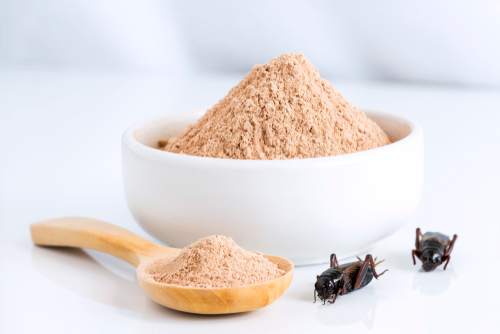
Tyson Foods, the world’s second-largest processor and marketer of meat, announced a joint venture with Protix, the world’s largest insect factory.
This partnership aims to explore the production of insect proteins and lipids, targeting the pet food, aquaculture, and livestock industries. However, this move raises serious questions about the future of our food system and the ethical implications of such practices.
The proposed plan involves the construction of an insect ingredient facility in the United States. Upon completion, it will be the first large-scale facility of its kind to transform food manufacturing byproducts into high-quality insect proteins and lipids.
The process involves using animal waste to feed black soldier flies, which are then turned into food for pets, poultry, and fish.
Tyson foods want you to eat ze bugs
They are laying off a lot of people
Many people I know are losing their jobs
If you'd like to work from home and get paid part time signing up your friends to buy 450+ products from a Patriot owned company
PepeD@trustonesource.com pic.twitter.com/b2aOfdhqUy
— Pepe Deluxe 🐸 (@deluxe_pepe) October 23, 2023
While Tyson Foods and Protix laud this venture as a groundbreaking solution that adds value to their business, one cannot help but question the sustainability and ethical implications of this initiative.
Is this truly a step towards a more sustainable food system, or is it merely a trendy leap onto the bandwagon of alternative protein sources?
John R. Tyson, the Chief Financial Officer of Tyson Foods, and Kees Aarts, CEO of Protix, praised this venture, emphasizing the opportunity for full circularity within their value chain. However, the idea of feeding animals with insects raised on their own waste seems to be a far cry from the natural food chain.
Moreover, the strategic investment aims to support the growth of the emerging insect ingredient industry and expand the use of insect ingredient solutions to create more efficient sustainable proteins and lipids for use in the global food system.
Though the question remains: do insect proteins really hold the key to sustainability?
@Tyson Foods cuts deal with insect protine company Protix, Because "you will eat zee bug". Its time to boycott Tyson Foods and all other distopian company.#FŭckTysonFoods#BoycottTysonFoods#WeWillNotEatZBugshttps://t.co/gUkId39OuT… pic.twitter.com/d5psisOCaU
— ©️ Thę§ĕ NüTT§🥜™️ (@BigWalnuTTs) October 20, 2023
The agreement combines Tyson Foods’ global scale, experience, and network with Protix’s technology and market leadership to meet current market demand and scale production of insect ingredients.
However, the potential health implications for animals and humans consuming these products remain largely unexplored.
While Tyson Foods’ venture into insect protein production may seem innovative on the surface, it raises serious concerns about the future of our food system. As consumers, we must remain vigilant and question the ethical and health implications of such practices.

















